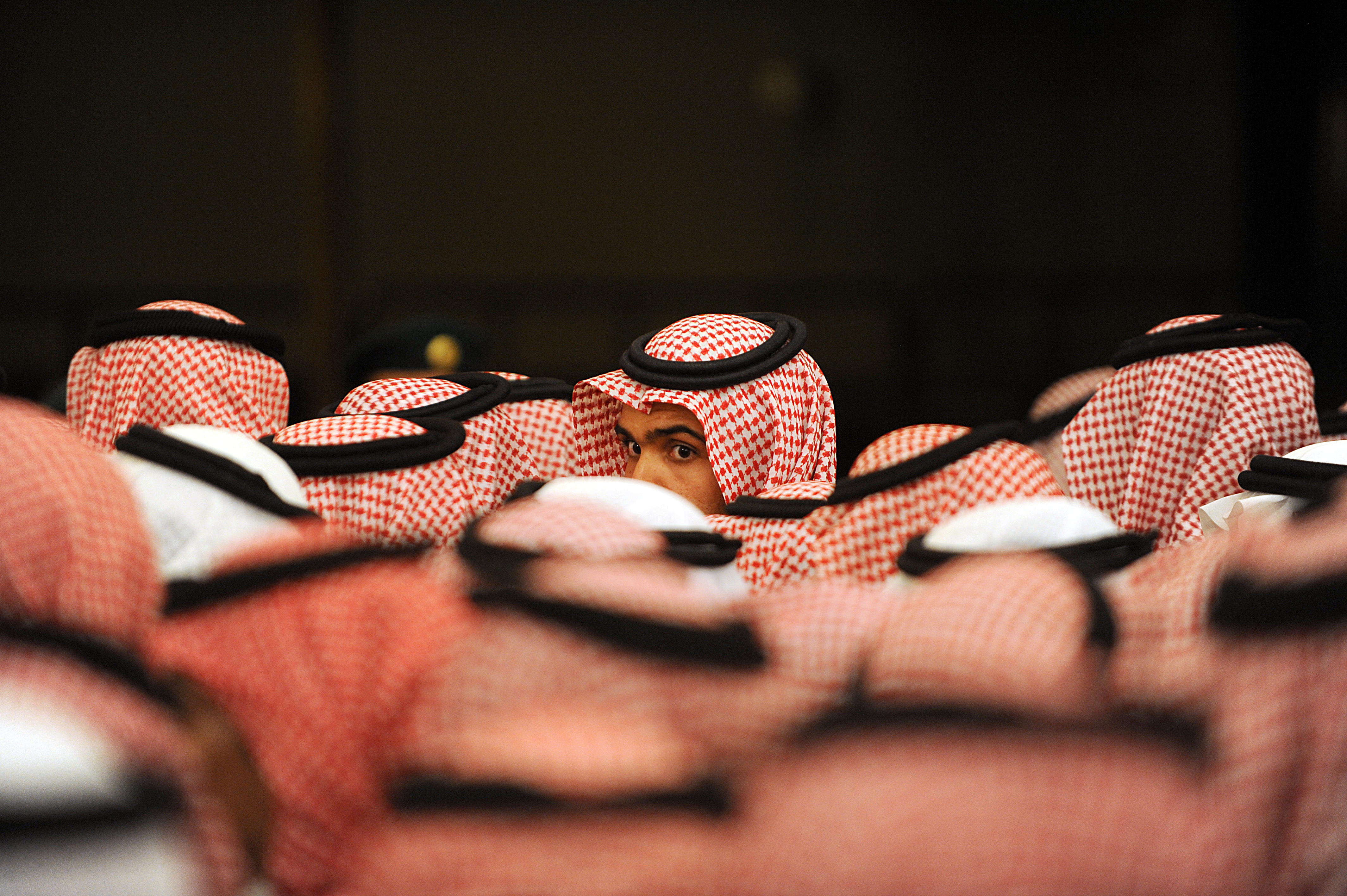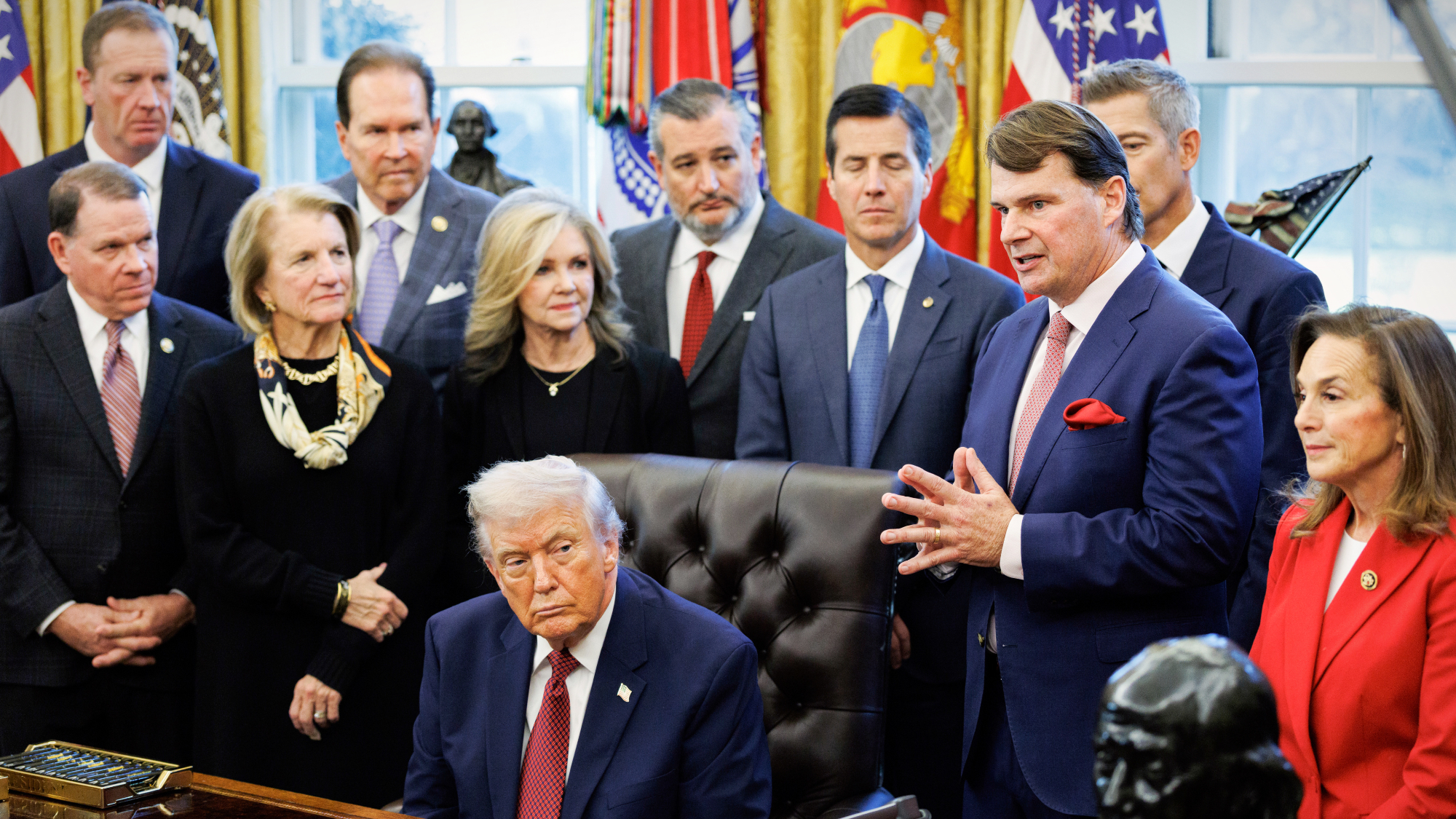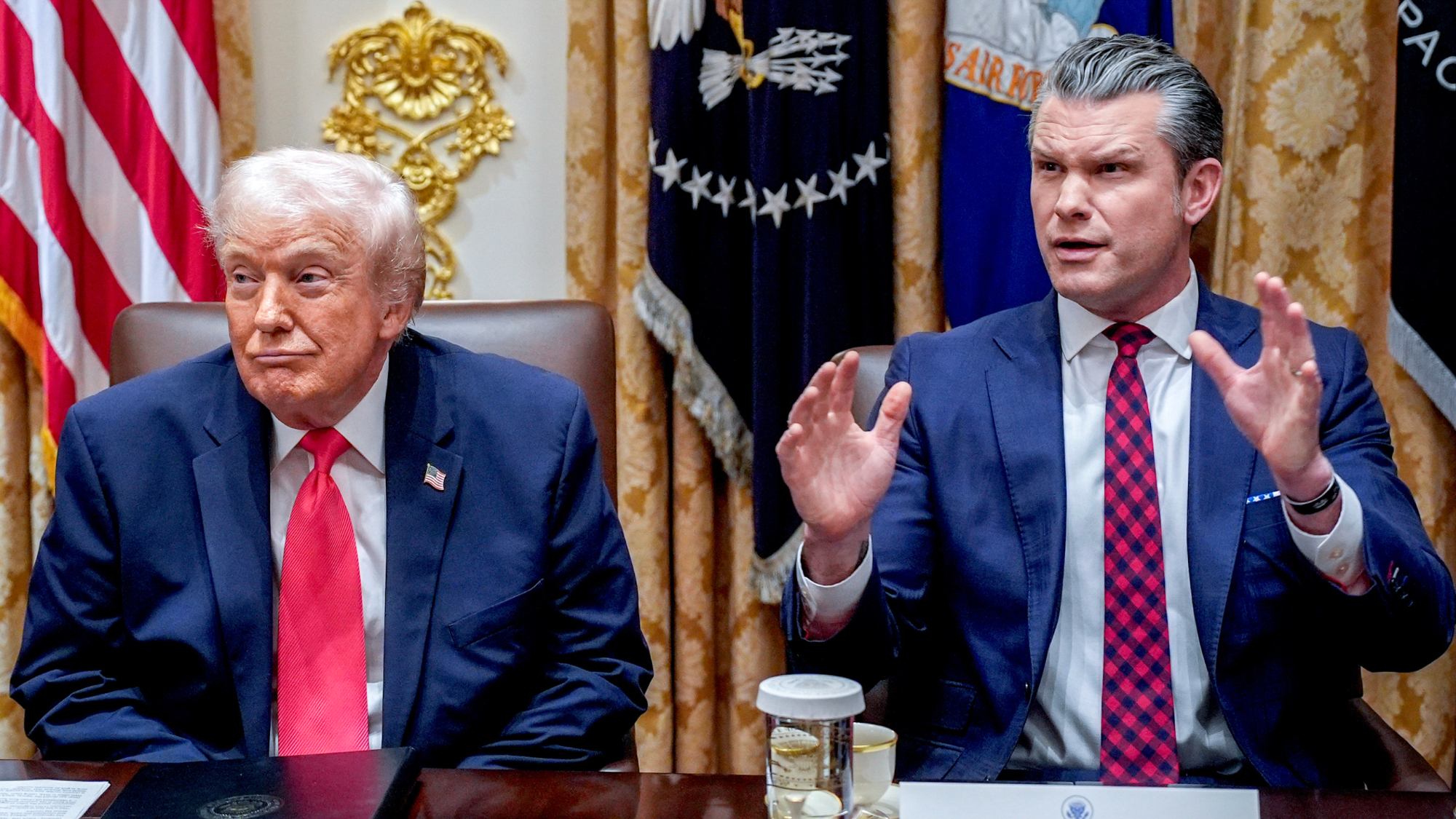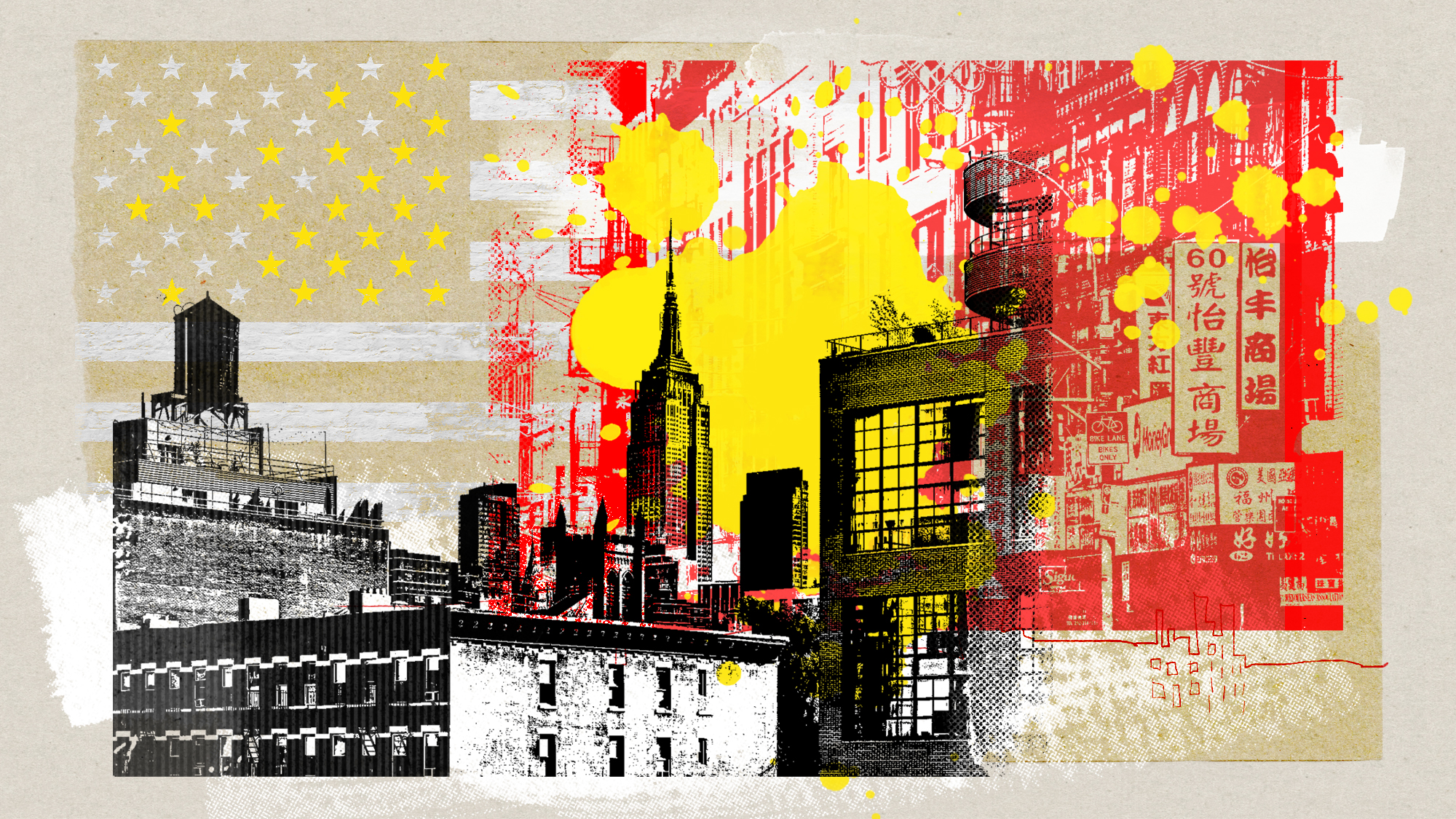There are big changes underway in Saudi Arabia
The House of Saud is crushing dissent and cutting benefits at home, while intervening militarily abroad. Here's everything you need to know.

The House of Saud is crushing dissent and cutting benefits at home, while intervening militarily abroad. Why? Here's everything you need to know:
Are the Saudis nervous?
Very. The royal family feels threats from within the country and without, as the price of oil plunges, the predominantly young population grows restless, and Saudi Arabia's bitter rival, Shiite Iran, seeks to expand its influence throughout the region. The Saudis were also deeply alarmed by the Arab Spring, which saw long-established regimes crumble; the U.S.'s nuclear deal with Iran; and the rise of ISIS. Since King Salman took the throne a year ago, Saudi authorities have intensified government repression to a severe degree. New counterterrorism legislation, enacted shortly before he took power, defines terrorism as any act with criminal intent that undermines public order, as well as any "deviant thought" that questions Wahhabism, the fundamentalist sect of Sunni Islam that dominates all aspects of Saudi life.
The Week
Escape your echo chamber. Get the facts behind the news, plus analysis from multiple perspectives.

Sign up for The Week's Free Newsletters
From our morning news briefing to a weekly Good News Newsletter, get the best of The Week delivered directly to your inbox.
From our morning news briefing to a weekly Good News Newsletter, get the best of The Week delivered directly to your inbox.
What is the impact of this law?
Any form of dissent is being prosecuted as a crime. Executions are at a two-decade high, with more than 150 public beheadings in 2015 and 47 in just the first week of this year — including the execution of a prominent Shiite cleric (see below), an act that led Iran to sever diplomatic ties. For urging Saudi society to be more liberal and secular, prominent blogger Raif Badawi was flogged, and his lawyer was jailed for defending him. When the lawyer's wife complained on Twitter about his arrest, she was jailed, too.
Who's pushing this crackdown?
A new group of leaders. The House of Saud has been led by elderly sons of modern Saudi Arabia's founder, Ibn Saud, for many decades. But King Salman, 80, has chosen not to name one of his younger half-brothers as his likely successor. Instead, he appointed his son Mohammed bin Salman al Saud, 30, as deputy crown prince and defense minister — and Mohammed is clearly the real power behind the throne. Unlike the older, U.S.-educated generation, Mohammed went to a Saudi university, has had little exposure to Western culture, and has "a reputation for arrogance and ruthlessness," says Bruce Riedel of the Brookings Institution.
A free daily email with the biggest news stories of the day – and the best features from TheWeek.com
What has Mohammed done?
The young prince plunged straight into a war in Yemen. "The previous, cautious diplomatic stance of older leaders within the royal family is being replaced by a new, impulsive policy of intervention," said a report from the German foreign intelligence service BND. Saudi Arabia is locked in a struggle with Iran for primacy in the Middle East. The rise of a Shiite government in Iraq brought that country firmly into the Iranian camp, and Lebanon was already there. The conflict in Syria has become a proxy war between the Assad regime, backed by Iran, and militias funded by the Saudis. So when Shiite Houthi militants toppled the Yemeni government, Mohammed moved in swiftly to prevent his country from being bookended by Shiite powers. Saudi airstrikes have killed thousands of Yemeni civilians, but the prince has been undeterred.
What about domestic policy?
Mohammed says he plans sweeping, market-based economic reforms. For 80 years, the Saudi economy has been based almost entirely on oil revenue. High oil prices brought in enormous wealth, which enables the government to fund a generous welfare state without levying any income tax. Most actual work is done by foreigners — a vast army of nearly nine million immigrants from South Asia and the Middle East who serve some 18 million Saudis. Saudis are employed largely in the bloated public sector, many of them drawing fat salaries for little work. But this model is becoming unsustainable. People under 25 make up more than half the population, and there aren't enough jobs for them as they reach working age. Worse, the collapse in oil prices — from $115 a barrel in 2014 to under $35 now — means there isn't enough money flowing in to sustain benefits at such generous levels.
Why not?
In the past, when oil prices have fallen, the Saudis have cut production to raise them. But this time, they've kept pumping with abandon. The goal is to preserve Saudi market share by driving higher-cost oil producers — notably the U.S. fracking industry — out of business. But the sharp drop in revenue requires painful cuts to the subsidies and expense accounts that so many Saudis rely on.
How will Saudis react to those cuts?
That's one of the things worrying the royal family. The Saudi people have long had a tacit agreement with their rulers: In return for a cushy life and generous benefits, they put up with an almost total lack of political freedom or say in their own government. Many Saudis are rich enough to skip off to Bahrain or Dubai for the weekend, where they can drink alcohol and the women can shed their burqas. Most, though, are middle-class, and around one-fifth are actually poor, and if Mohammed makes good on his pledge to replace the free health care with an insurance-based system and partially privatize education, they will suffer. "With a decline in social spending and a reduction in subsidies," says analyst Alberto Gallo, "comes the risk of rising domestic turmoil."
The oppressed Shiite minority
The Saudi regime said it executed Shiite cleric Nimr al-Nimr for terrorism, but critics said the real reason was his activism in organizing the Shiite minority and denouncing the House of Saud. Shiites make up 15 percent of the population in Saudi Arabia, and they are strongly discriminated against. They are excluded from the cushy government jobs, and Saudi television and Saudi clerics routinely spread anti-Shiite propaganda. For three years, activists in the oil-rich eastern province of al-Ahsa, abutting Shiite-majority Bahrain, have been protesting, sometimes violently. "You are now standing on top of oil fields that feed the whole world," Shiite activist Fathil Al Safwani told the BBC. "But we see nothing of it. Poverty, hunger, no honor, no political freedom, we have nothing." By executing Nimr, the House of Saud sent a clear signal that nothing will change; indeed, even complaining about anti-Shiite discrimination will get you beheaded.
-
 Trump boosts gas cars in fuel economy rollback
Trump boosts gas cars in fuel economy rollbackspeed read Watering down fuel efficiency standards is another blow to former President Biden’s effort to boost electric vehicles
-
 Hegseth’s Signal chat put troops in peril, probe finds
Hegseth’s Signal chat put troops in peril, probe findsSpeed Read The defense secretary risked the lives of military personnel and violated Pentagon rules, says new report
-
 Texas is trying to become America’s next financial hub
Texas is trying to become America’s next financial hubIn the Spotlight The Lone Star State could soon have three major stock exchanges
-
 Femicide: Italy’s newest crime
Femicide: Italy’s newest crimeThe Explainer Landmark law to criminalise murder of a woman as an ‘act of hatred’ or ‘subjugation’ but critics say Italy is still deeply patriarchal
-
 Brazil’s Bolsonaro behind bars after appeals run out
Brazil’s Bolsonaro behind bars after appeals run outSpeed Read He will serve 27 years in prison
-
 Americans traveling abroad face renewed criticism in the Trump era
Americans traveling abroad face renewed criticism in the Trump eraThe Explainer Some of Trump’s behavior has Americans being questioned
-
 Nigeria confused by Trump invasion threat
Nigeria confused by Trump invasion threatSpeed Read Trump has claimed the country is persecuting Christians
-
 Sanae Takaichi: Japan’s Iron Lady set to be the country’s first woman prime minister
Sanae Takaichi: Japan’s Iron Lady set to be the country’s first woman prime ministerIn the Spotlight Takaichi is a member of Japan’s conservative, nationalist Liberal Democratic Party
-
 Russia is ‘helping China’ prepare for an invasion of Taiwan
Russia is ‘helping China’ prepare for an invasion of TaiwanIn the Spotlight Russia is reportedly allowing China access to military training
-
 Interpol arrests hundreds in Africa-wide sextortion crackdown
Interpol arrests hundreds in Africa-wide sextortion crackdownIN THE SPOTLIGHT A series of stings disrupts major cybercrime operations as law enforcement estimates millions in losses from schemes designed to prey on lonely users
-
 China is silently expanding its influence in American cities
China is silently expanding its influence in American citiesUnder the Radar New York City and San Francisco, among others, have reportedly been targeted